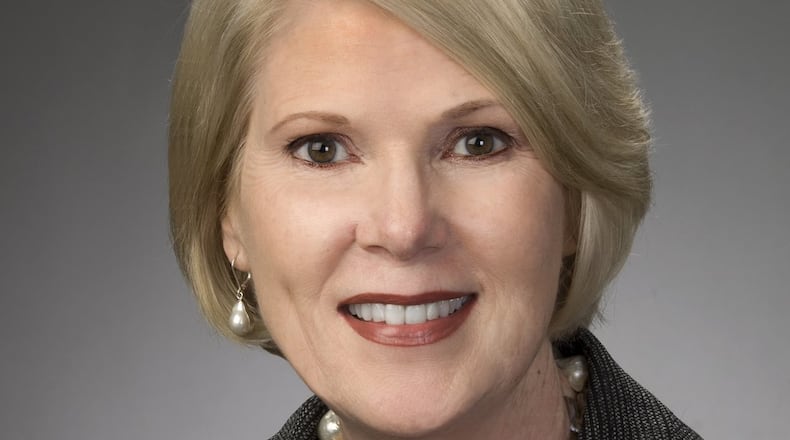Now similar bills will be introduced by next month in the new legislative session.
“That’s a lot of money for an uncontested race,” said Ohio Rep. Wes Retherford, R-Hamilton, who will jointly sponsor a new bill with Ohio Rep. Dorothy Pelanda. Retherford attempted to introduce a similar bill last year, but Pelanda’s was introduced first.
Pelanda, R-Marysville, called that "a very unique circumstance" and introduced a bill just days after Ohio Sen. Frank LaRose, R-Hudson introduced a similar bill.
Pelanda and Retherford now partner and jointly introduce similar legislation as the new two-year general assembly begins. Pelanda and Retherford both said the Ohio House just "ran out of time" to get either House Bill 591 or Senate Bill 347 through committees and on the House floor for a vote. Senate Bill 347 received unanimous support from the Ohio Senate.
The issue arose when congressional candidate Corey Foister decided to withdraw in late July 2016 from the 8th Congressional District race to be decided in the general election. That decision set in motion state protocols, and included Ohio Secretary of State Jon Husted calling for a special election to replace Foister on the general election ballot.
Husted told this news outlet he tried to avoid holding a special election after only one candidate filed and was certified, but state law dictated he was required to hold a special primary election since Foister withdrew outside of 90 days before the general election.
If he would have resigned 18 days later, the state would not have spent a dime on a special election and the Democrats could have appointed a replacement.
This issue only came about during the race to replace former Speaker John Boehner in Congress. When Boehner, who retired in October, announced he’d leave Congress after 25 years a flurry of would-be replacements — including Foister and eventual successor Warren Davidson — filed to run to fill the unexpired term he vacated and for the ensuing two-year term.
Davidson, a Republican businessman from Troy, won a very crowded Republican general and special primaries in March, and then cruised to win the special general election in June against Foister. Then when Foister withdrew, that exposed the costly flaw in Ohio election law.
Ohio lawmakers and state and local officials were appalled when Husted said the special primary could cost just as much as the special general election where Davidson won with 76.8 percent of the vote. That cost Ohio taxpayers $506,000 in a low turnout election.
Springfield Democrat Stephen Fought was the only candidate to file, and certified, to run in the special Democratic Party primary this past Sept. 13. Though one vote won the primary for Fought, slightly more than 1,600 votes were cast.
Retherford said it would be different if two people successfully filed for a special primary election because “we’re still a democratic republic, but if there’s just one person, the secretary of state should be able to deem that person the party’s nominee.”
LaRose was unavailable on Wednesday for comment but a legislative aide said the senator intends to re-introduce his bill soon after the legislative priority bills are introduced by the Senate president. Pelanda and Retherford said that’s the same time when their bill is likely to be introduced.
While Retherford said it should have been passed in the last general assembly, he said it’s important to get it accomplished soon in this new general assembly.
“In all reality, it’s important to get it done right away,” he said. “There are plenty of federal appointments to be made (by the Donald Trump) and there are 12 congressmen in Ohio. It’s not that far-fetched of an idea a congressman could be appointed and we’re going to be put in that same situation.”
About the Author


